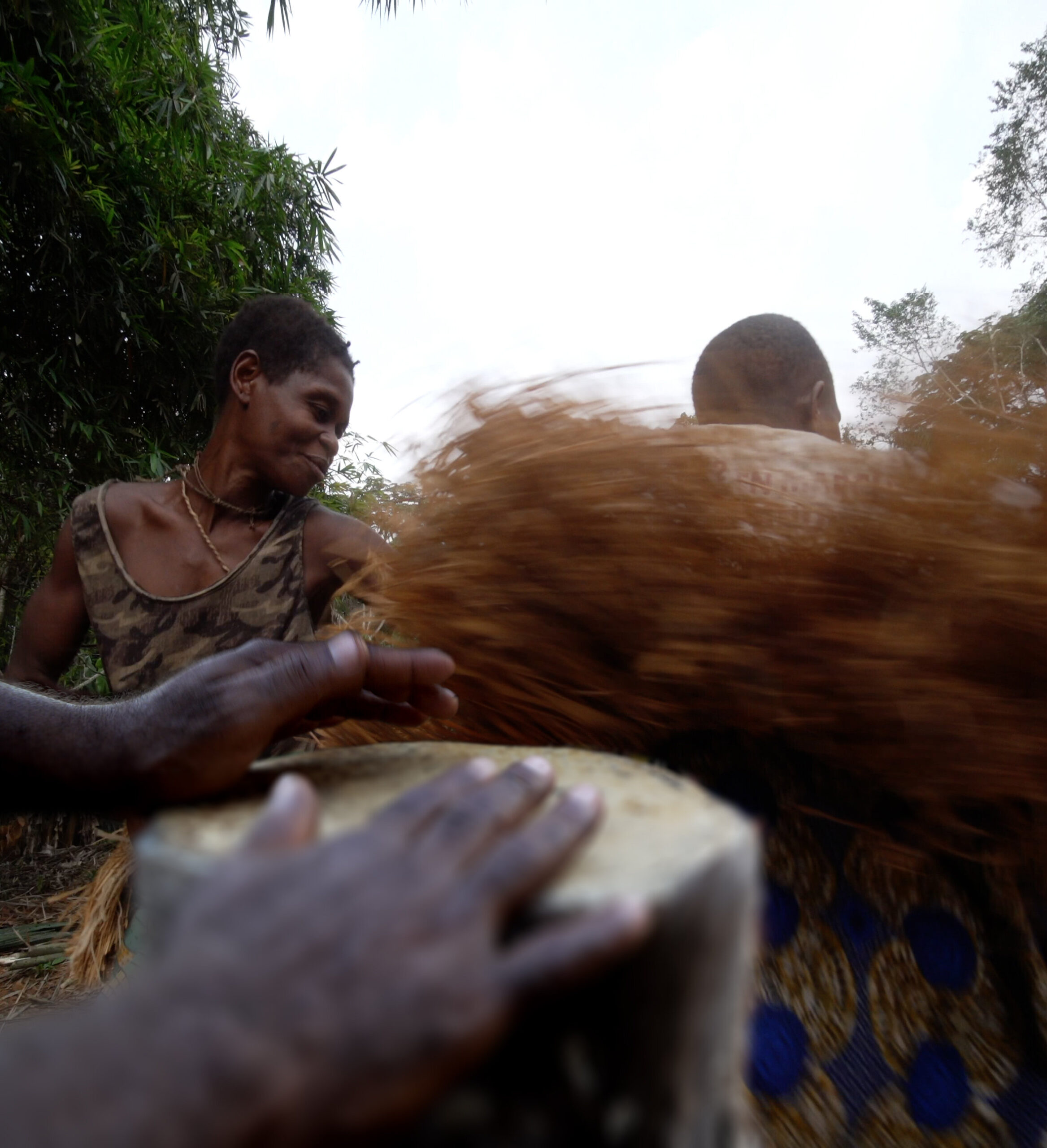BaYaka hunter-gatherers playing musical instruments and dancing. Credit: Rodolph Schlaepfer, University of Zurich
× close to
BaYaka hunter-gatherers playing musical instruments and dancing. Credit: Rodolph Schlaepfer, University of Zurich
Extensive social networks among various hunter-gatherer groups in the Congo Basin existed long before agriculture arrived in the region. This cross-continent exchange preserved a cultural diversity that emerged thousands of years ago, as researchers from the University of Zurich have shown based on musical instruments, specialized vocabulary and genetic information.
Central Africa has been inhabited by hunter-gatherer populations for hundreds of thousands of years, according to recent research based on genetic, archaeological and paleoenvironmental data. However, today’s hunter-gatherers living in the Congo Basin speak languages that they have recently adopted from their agricultural neighbors, the Bantu.
This raises the question of which elements of Central Africa’s ancient cultural diversity arise from long-term evolution and regional cultural exchange that predates agriculture, and which aspects are influenced by interactions with farming communities.
Culture, language and genes evolve together
An international team of researchers led by Andrea Migliano from the Department of Evolutionary Anthropology at the University of Zurich (UZH) has discovered previously unknown links between culture, language and genes among several hunter-gatherer populations in Central Africa.
“We found that the distribution of musical instruments among hunter-gatherers correlates very strongly with those genetic segments that are of ancient origin. So these populations were exchanging musical instruments long before there were any agricultural populations in the region,” says Migliano.
The project was developed by Cecilia Padilla-Iglesias, Ph.D. student and first author. The results are published in the journal Nature Human behavior.
The timing of genetic exchanges between populations can be inferred by tracing the origins of specific genome segments. To this end, the researchers collected genetic data from eleven Central African hunter-gatherer groups and divided their DNA into segments based on the timing of the exchanges: data introduced by introgression or exchange with Bantu populations, that from recent exchanges between hunter-gatherer populations. and those of ancient origin.
In addition, the team has compiled an extensive dataset of musical and foraging instruments, along with their names from historical documents and ethnographies. They then compared how the structure of cultural diversity – the similarity between groups in repertoires of musical instruments and livelihoods, based on the presence or absence of similar musical instruments – correlated with genetic diversity at different times.
Extensive social networks spanning thousands of kilometers
“It was surprising that although the various Central African hunter-gatherer groups speak languages from very different families, they share a disproportionate number of words related to music. Therefore, these words can be traced back to a time before hunter-gatherer populations languages adopted from their Bantu neighbors,” says anthropologist Migliano.
The results suggest that extensive interactions between hunter-gatherer groups in the Congo Basin, even those thousands of kilometers apart, influence not only their genetic makeup but also their linguistic and cultural characteristics. These extensive social networks helped maintain a cultural diversity that developed thousands of years before the advent of agriculture in the region.
Migliano adds: “The large-scale cultural networking of modern humans has deep roots in the past, at least in Central Africa.”
More information:
Cecilia Padilla-Iglesias et al., Deep History of Cultural and Linguistic Evolution among Central African Hunter-Gatherers, Nature Human behavior (2024). DOI: 10.1038/s41562-024-01891-y
Magazine information:
Nature Human behavior
